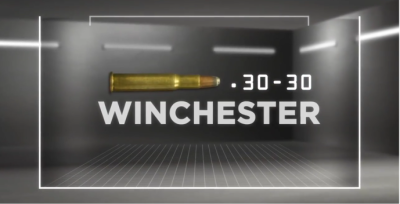Machine guns, along with a few other items, are known as NFA items because they are regulated under the National Firearm Act. This law, first enacted in 1934 and updated in 1968 and 1986, regulates and restricts the sale and ownership of machine guns, suppressors, short-barreled firearms, AOWs (any other weapons) and destructive devices. These acts do not, however, ban these items; they just make the process long, arduous and expensive. Also, all NFA items are registered with the federal government and tracked from owner to owner. Sellers must obtain permission from the ATF before transferring such items to new owners.
Can an Individual Buy a machine gun?
When it comes to certain firearms, there is a lot of misunderstanding, even among gun owners. Many people believe that average gun owners can’t legally own a fully automatic weapon (machine gun), such as an HK MP5. They can; it is completely legal. It just takes time, money and patience.
What is the Process for Buying a Machine Gun?
While buying an NFA item, such as a machine gun, requires a stringent process, it is not as difficult as many think. If someone qualifies to purchase a handgun or revolver, then that same person can most likely purchase a machine gun, if the proper procedures are followed.
After finding the desired machine gun and making payment, purchasers must fill out and submit ATF Form 3 to have the firearm sent to a local class 3 dealer with an SOT (Special Occupational Taxpayers) certification. At that point, ATF Form 4 must be filled out with name, personal information, a passport-style photo and fingerprints. All this must be sent in duplicate to the ATF’s NFA branch, along with the $200 tax stamp payment. After the NFA branch conducts the background check and approves the transfer, which can take six months or more, the firearm can be picked up. There was a time when the local chief law enforcement officer had to approve the purchase, but the ATF changed this to notification instead of permission.
Can You Buy a Machine Gun on GunBroker.com?
According to the ATF, there are just under 176,000 machine guns registered for civilian use. And since machine guns produced after 1986 are banned, this number will never increase unless the law changes; the number will only decrease as some machine guns become inoperable due to wear and lack of parts. This lack of supply, along with the increased demand of more shooters, has significantly increased the costs of machine guns and submachine guns. Therefore, one of the best ways to purchase a machine gun is through GunBroker.com.
A quick search typically shows dozens of transferable machine guns available to shooters. To bid on any firearm, including NFA items, users must have a GunBroker.com account. Then, use the FFL Finder to find a Class 3 dealer that can receive NFA items, and research the seller. After winning a bid, talk to the receiving dealer to start the paperwork and background check to obtain the NFA item. This is also when user must make a decision on how to register the machine gun. And don’t forget the ammo.
Individual, Trust or Corporation
There are three different ways to legally purchase a machine gun, as an individual, a trust or a corporation. The costs associated differ for each, as do the benefits and shortcomings. Purchasers must determine which is best for their uses.
The easiest and cheapest method to purchase a machine gun is as an individual. Purchasing a machine gun in this method requires the least amount of paperwork and only requires spending $200 for the tax stamp, along with whatever transfer fees are required by the receiving FFL. Because of this, the waiting period can be shorter in theory. However, it still takes months to get approval. One downside to individual purchases is that registered owners must be in attendance anytime the items is in use. Machine guns, suppressors or any other NFA items can’t be loaned to friends or family members. Also, if anything happens to the registered user, such as death, heirs can’t simply take possession. The ATF does, however, have a method that allows executors of wills to transfer or sell NFA items. If the item is going to an heir, the tax can be waived but the background check is still required.
Related Videos: Auto-Ordnance Thompson 1927A-1 .45 Carbine Semi-Automatic Rifle
The most popular method is through a trust. A trust allows owners to add or subtract trustees as needed. Trustees can possess and use the items listed on the trust. A trust also allows the purchaser to list beneficiaries upon death; this means that spouses can legally own and possess NFA items, if he or she is listed as a trustee. However, someone must set up the trust. This typically means paying a lawyer that is knowledgeable about NFA trusts, and costs can vary. Of course, some folks create trusts on their own. A problem with this is that if one piece is done incorrectly, the ATF will deny the application. A trust can also increase the wait time, due to the background checks required for each trustee. Of course, there are groups that help purchasers set up trusts, if the item is purchased from them.
Related Content: Shop Gun Parts & Parts Kits for Every Make and Model
The final way to purchase a machine gun is as a corporation. Known as a corporate trust, this method places the NFA item under the ownership of a corporation. The benefits of this include allowing all listed officers of the corporation to possess and use any item listed in the corporate trust. However, corporations must register with the state and are subject to business regulations and taxes. This means changing officers is regulated through state law. Also, ownership of the NFA item can get tricky if the corporation folds.
Each registration method has benefits, depending on needs. Regardless, those wanting to purchase a machine gun need to have patience that might make Job jealous, and will spend about the same amount when purchasing a good used car.
The information provided on this website does not, and is not intended to, constitute legal advice; instead, all information, content, and materials available on this site are for general informational purposes only, and applicable in the USA.
Related Articles: Machine Gun History – Part 1 | No Lowballers Podcast Episode 5
Related Articles: Silencers & Suppressors: Debunking Common Myths
Related Articles: Rifle, Carbine, or Short Barrel Rifles (SBR): Which Is Right for You?
GunBroker.com Product Spotlight Videos
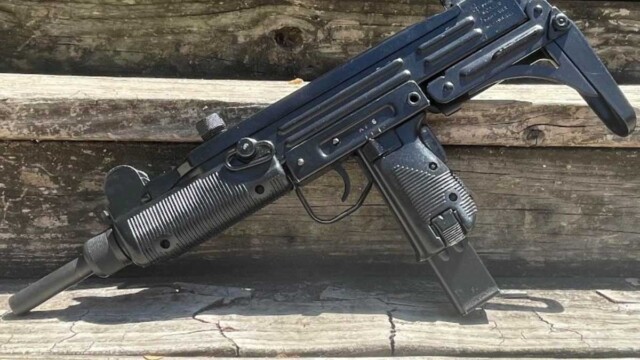
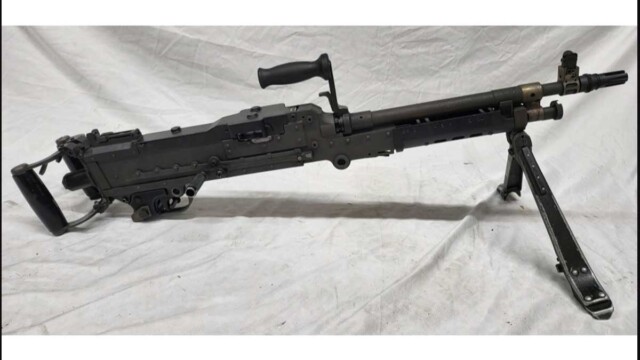
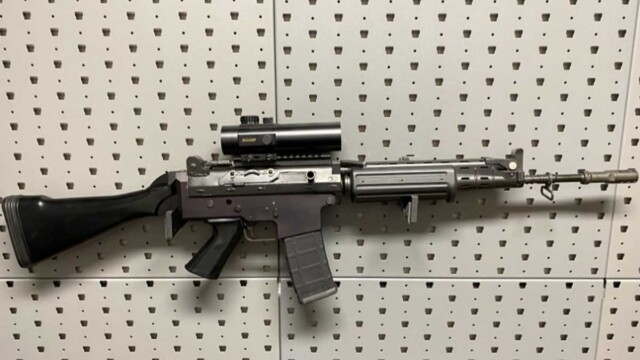
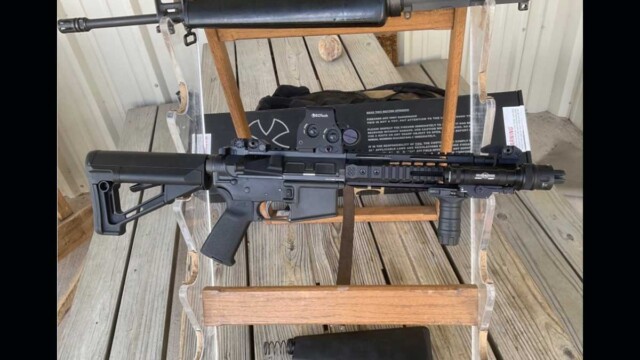
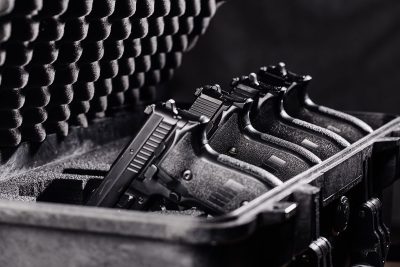
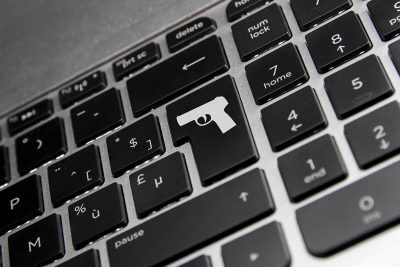

![Bargain Guns: Choosing the Best Rifle for the Money [2019]](https://content.gunbroker.com/wp-content/uploads/2019/08/rifle-1010035489-400x224.jpg)
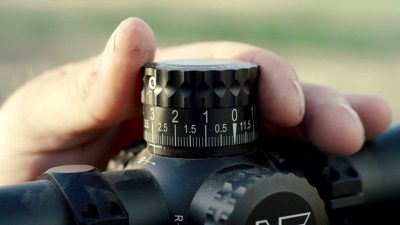

![The Ammo Locker: All About the .300 Weatherby Magnum [Video]](https://content.gunbroker.com/wp-content/uploads/2021/02/AmmoLocker-.300-Weatherby-Magnum-400x204.png)
![Ammo Locker: All About 7mm-08 Remington [Video]](https://content.gunbroker.com/wp-content/uploads/2021/02/AmmoLocker-7mm-08-Remington-400x204.png)
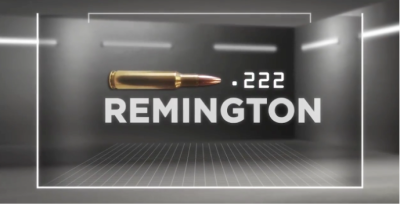
![Ammo Locker: All About .223 Remington [Video]](https://content.gunbroker.com/wp-content/uploads/2021/02/AmmoLocker-.223-Remington-400x204.png)
